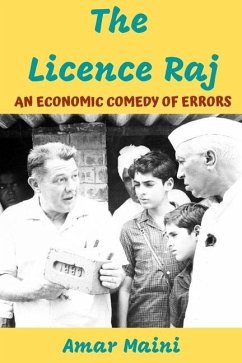The Licence Raj remembers India's tryst with socialism in the years after Independence. The dream of a resurgent Indian economy was, even by 1947, an old one. Students of Elphinstone College, Bombay had written the first economic critiques of the British Raj a century earlier. A professor of mathematics, Dadabhai Naoroji then told the world of the drain of India's wealth under British rule. The jurist Mahadev Ranade wanted to create a uniquely Indian approach to the study of political economy. The civil servant Romesh Dutt was a patron of the swadeshi movement which worked to rebuild Indian enterprise by making things in India once again. After the First World War Mohandas Gandhi sought to revive long forgotten village industries. And on the eve of the Second World War a young Jayaprakash Narayan tried to convince his fellow Congressmen of the merits of socialism. Jawaharlal Nehru was also a socialist and when he became prime minister set about remaking India according to a "socialistic pattern of society". He was assisted by an old acquaintance from Calcutta, the physicist Prasanta Mahalanobis. They would soon have some unexpected advisers however. Just as the British departed, the Americans arrived.








